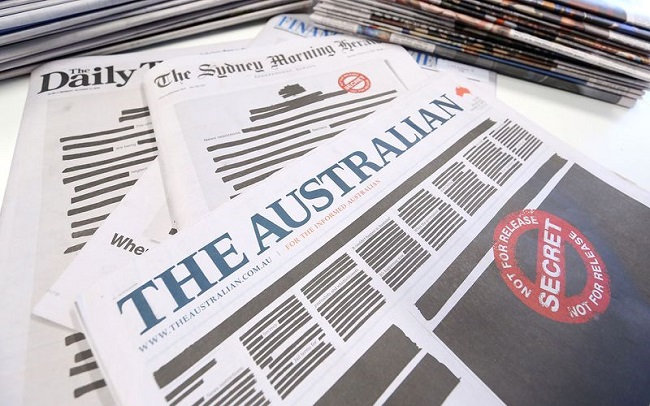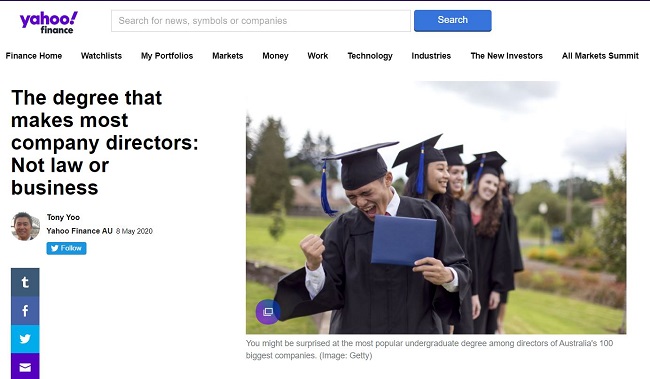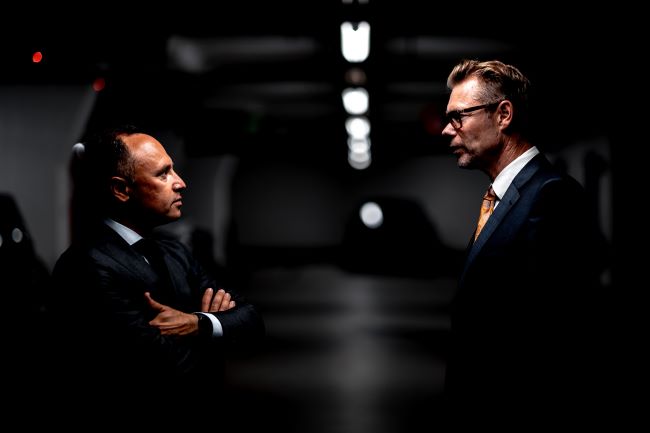by Adam Connolly
October 22, 2019
Feature
Yesterday’s unprecedented collaboration by the nation’s major news outlets in devoting their front pages, and TV and radio broadcasts, to media freedom shows how serious the issue has become in Australia.
Historically, press freedom is a relatively new concept, developed in the last 200 years or so. Before that, tyrants ruled and despots thrived.
Experience has also taught us that strong institutions like the monarchy and religion have spent almost 2,000 years trying to control and shape community opinion across large parts of Europe, Asia and Africa.
In the 21st century that should not be the case. Scrutiny is the great democratic cleanser.
In Australia, we need a strong profession of independent journalists, whose job it is to hold those in power to account, exposing corruption, questioning authority and constantly delving and probing for the truth.
This is exactly how the recent Royal Commission into the banking sector came about, through constant journalist enquiry and the bravery of whistleblowers prepared to risk their own careers to expose the truth.
Some testimony was shocking as it raised instances of financial exploitation, moral decay and outright greed by some in the banking sector, validating that journalistic advocacy.
So too, the current Royal Commission into the aged care sector was prompted by a looming expose by ABC’s 4 Corners on the abuses occurring in the sector.
The revelations since then have been ongoing and traumatic for many.
Notwithstanding these great journalistic achievements, press freedom in Australia is slowly being suffocated, denying its citizens the right to know.
As a former third-generation journalist, this is deeply troubling.
According to the New York Times, Australia now carries the dubious distinction of being “the world’s most secretive democracy.”
The global masthead claims the “aggressive approach” of the Australian Government in targeting and punishing reporters is in turn silencing and intimidating their sources.
This may partly explain why Australia has dropped two places this year to 21 in the World Press Freedom Index, behind Surinam, and barely ahead of Samoa and Namibia. New Zealand is ranked seventh, and we should be with them.
The causes are twofold; increasing legislative restrictions on what journalists can and can’t do, and thuggish enforcement of the laws by Australian government agencies to intimidate public sector whistleblowers.
In June, the Australian Federal Police carried out two raids on media premises. Firstly, at the private home of a News Corp federal political reporter in Canberra and secondly at the ABC headquarters in Sydney.
Who will be next?
According to respected investigative journalist Kate McClymont “sources who were once driven to ensure the public knew what was happening in law enforcement, government, aged care, the public service, hospitals and the defence forces are now terrified of losing their jobs, being sued or, even worse, going to jail”.
The history of press freedom goes back to the birth of mass media. As soon as the printing press was invented, officials created ways to censor it.
In 1501, Pope Alexander VI issued a notice requiring printers to submit copy to church authorities before publication, in order to prevent heresy. Penalties for bypassing the censors included fines and excommunication.
In the American colonies, the defence of John Peter Zenger against libel charges in 1735 is often seen as the cornerstone of American press freedom. After the American Revolution, several states passed laws guaranteeing freedom of the press, and the First Amendment (1791) to the U.S. Constitution declared that “Congress shall make no law … abridging the freedom of speech or of the press.”
Strong democracies like Australia thrive on scrutiny, because it strengthens trust in institutions such as government, business and the law. It encourages responsibility, accountability, transparency and probity by those who have the capacity, or temptation, to abuse their power.
Having worked in government, journalism and business, I have seen first-hand how the media has a critical role in responsibly scrutinising the excesses of our society.
Australia’s colonial genesis as a penal colony meant we never evolved with the same guarantees of press freedom as the United States.
Today, Australian journalists don’t always get it right. Some lose their moral compass, but the vast majority remain dedicated to seeking the truth.
In a world where misinformation is accelerating, democracies need the comfort of a professional group of story-tellers with the resources and sanction to hold the powerful to account.
As the Washington Post proclaims on its masthead each and every day, “Democracy dies in darkness”. Sunlight is the best disinfectant.
Find out more
If you would like to add to this conversation, please email Adam Connolly at Apollo Communications.
Stay up to date with more blog posts by the Apollo Communications team here.

Suite 94 | Jones Bay Wharf
26-32 Pirrama Road
Pyrmont NSW Australia 2009




